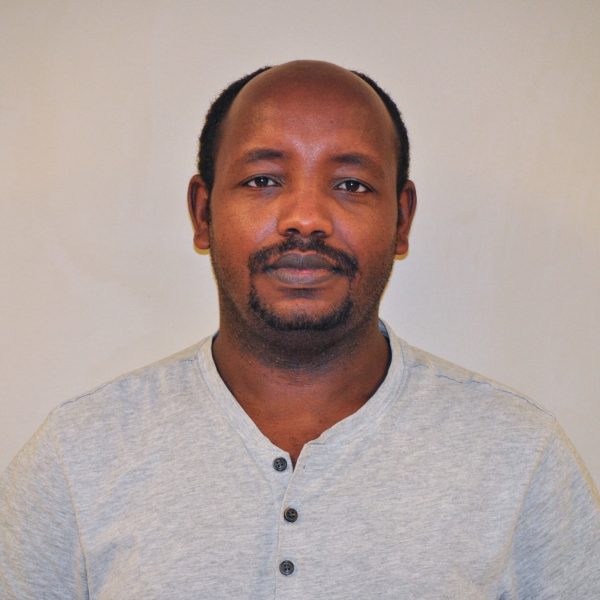Alumni Column – Insights on Bursting the Bubble
“Walk a mile in my shoes.” This is an old clich?e, perhaps, but it is one that is still applicable in this increasingly inter-connected world of ours. When I think about the benefits of studying abroad, this old clich?e readily comes to mind. How better to meet our global neighbors than by studying on their own turf? Natural scientists never presume to study a phenomenon just in books or by listening to professors’ lectures (insightful as they may be); in addition, natural scientists seek to discover by feeling, touching, observing with their own eyes, ears and hands. Similarly, social scientists, students of culture, cannot presume to learn about our world merely by remaining on campus and by relying on books and lectures. We, too, need to see, hear, and touch. We can do this by meeting others from different cultures, sharing meals or drinks, sharing stories, sharing lives, walking a mile in their shoes.
Shakespeare’s plays become so much more alive when viewed in the Globe Theatre; the enormity of China becomes much more evident when walking for hour upon hour upon the Great Wall; the population density of India becomes much more real as one navigates a crowded market. These experiences, however, can be the stuff of errant travelers’ brief forays beyond our shores. Important as these insights are, they pale in comparison to the cultural learning that occurs during a study group.
A prolonged stay in a foreign country, living in student housing or perhaps with a host family, provides much richer experiences than a brief jaunt abroad. Jockeying for space on over-crowded mass transit, particularly when the destination signs whiz by before you can decipher them, cheering until hoarse at a World Cup match viewed from the middle of a very crowded pub, purchasing fresh out of the oven croissants at a Lyon boulangerie, bartering for that “must have” keepsake in the souk – these are some of the experiences that are lasting memories for study group participants. Those of you who are study group veterans can probably list your own lasting memories quite easily.
Are study group experiences life changing? I think the vast majority of study group participants would answer with a resounding “yes.” While a foreign study group experience may not lead to a life in the foreign service or even a life as an expatriate, it does lead most of us to view our own country and the rest of the world differently than those who don’t study abroad. For some the experience leads to a love of international travel that we pass on to the next generation. For others the experience of having been an outsider in a strange place leads them to seek out newcomers in their own communities and offer them support. For still others it may just cause them to view the media a bit more critically, to seek out viewpoints from other countries a bit more readily. In all of these cases, greater cultural understanding, and hopefully greater tolerance of other perspectives, is the result.
Participation in a study group also leads to more personal, less readily definable changes in each person. Study group members are more mature and more confident in their own abilities when they return to the States and the Chenango Valley. Arguably, students today experience fewer feelings of separation compared to students from past eras due to the greater homogenization of the world and easier, cheaper and faster communications and travel. Nonetheless, study group participants still have to negotiate foreign transport, and English is not always spoken or understood. For some this may be their first independent travel, either abroad or in the States. Whatever the level of experience with foreign travel or life abroad, new adventures are bound to occur and they are wonderful maturing experiences for many students. They are also chances to bond with a new set of friends, many of whom will remain your friends for a lifetime.
How important are these experiences in the larger scheme of things? Recent news stories about the British military personnel detained in Iran brings home the point of how peoples of differing cultures view the world. One NPR newscast in particular emphasized the differing interpretations people from two cultures could give one event. To the British and the inhabitants of the western world, parading these captives on Iranian state television violated international law and these prisoners’ rights. The Iranian government take was the opposite – images of the prisoners showed them to be healthy and well-treated, seemingly a consolation to the families and friends worrying about them. Better understanding of each other’s worldviews, something that cross-cultural interaction helps to foster, could help diffuse volatile situations such as this.
Similarly, many news stories leading up to Earth Day 2007 have emphasized the differing effects that global warming has on inhabitants in the richer and poorer countries of the world. One newscast showed rising tidal waters in Bangladesh robbing farmers of valuable grazing lands. Others have examined the worsening droughts over parts of Africa attributed to global warming. Seeing these areas first hand and especially observing these changes as they affect some of the poorest people in our world hopefully will lead to greater desires to fight global warming. Students who study in these regions, be they natural or social scientists, will gain greater understanding of global interconnectedness and responsibility.
“Walk a mile in my shoes.” An old clich?e, yes, but still a worthwhile pursuit by Colgate students today.







